News in Brief
-
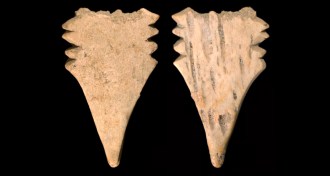 Archaeology
ArchaeologyStone Age fishing spear found on Southeast Asian island
Notched piece of bone found near Indonesia illustrates surprisingly complex tool making 35,000 years ago.
By Bruce Bower -
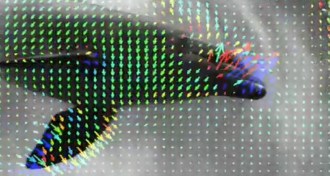 Animals
AnimalsSwimming dolphins don’t need to cheat
Dolphins swimming through bubbles burst old notion of underpowered muscles.
By Susan Milius -
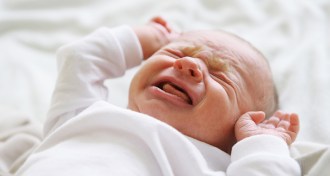 Health & Medicine
Health & Medicine‘Good bacterium’ prevents colic symptoms in newborns
Crying time was nearly halved in babies receiving the beneficial microbe.
By Nathan Seppa -
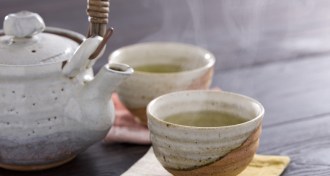 Health & Medicine
Health & MedicineGreen tea may sabotage blood pressure medication
Antioxidants in drink may keep intestinal cells from taking up drug.
By Beth Mole -
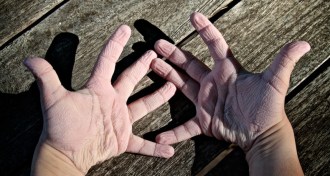 Animals
AnimalsWrinkle arises in soggy hand studies
An experiment bucks earlier finding that ridges help fingers grasp.
By Beth Mole -
 Neuroscience
NeuroscienceCaffeine may improve memory
Taking the stimulant after learning new information boosted people’s recall the next day.
-
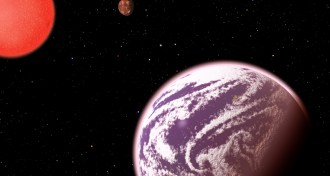 Astronomy
AstronomyEarth-mass planet resembles a mini-Neptune
KOI-314c, an exoplanet 200 light-years away, is about 60 percent larger than Earth but made mostly of gas.
By Andrew Grant -
 Chemistry
ChemistryBattery blueprint promises green energy storage
A device that relies on organic molecules could cheaply bank power from renewable sources.
By Beth Mole -
 Life
LifeDeadly influenza could strike aboriginal groups hardest
Native Alaskans and Australians tend to lack potent flu-fighting immune cells.
-
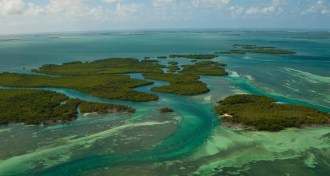 Climate
ClimateMangroves move up Florida’s coast
Satellite images reveal that the tropical trees are expanding north up Florida’s Atlantic coast, taking advantage of rising winter temperatures.
-
 Humans
HumansNuts in pregnancy may decrease allergy risk in kids
The result runs counter to past studies.
By Nathan Seppa -
 Environment
EnvironmentProtein fibers trap greenhouse gas
The method could scrub exhaust from cars and power plants.